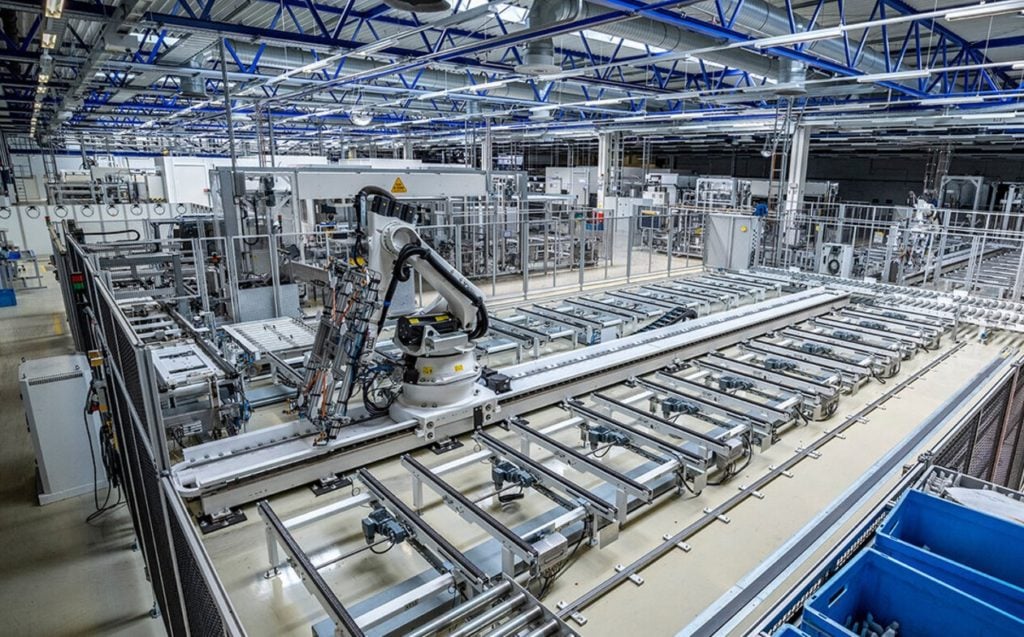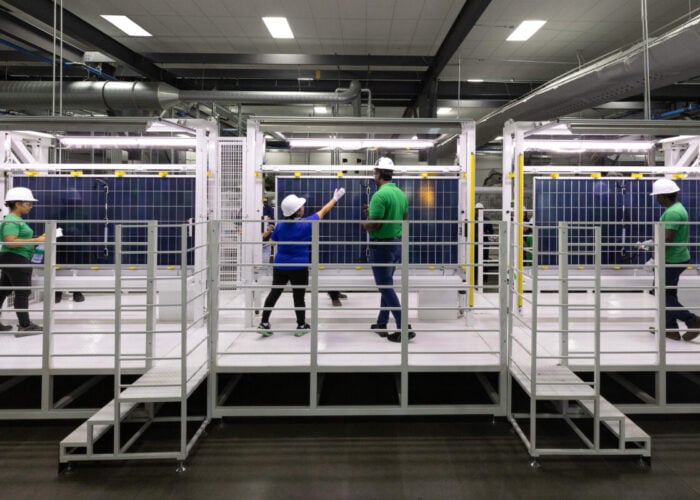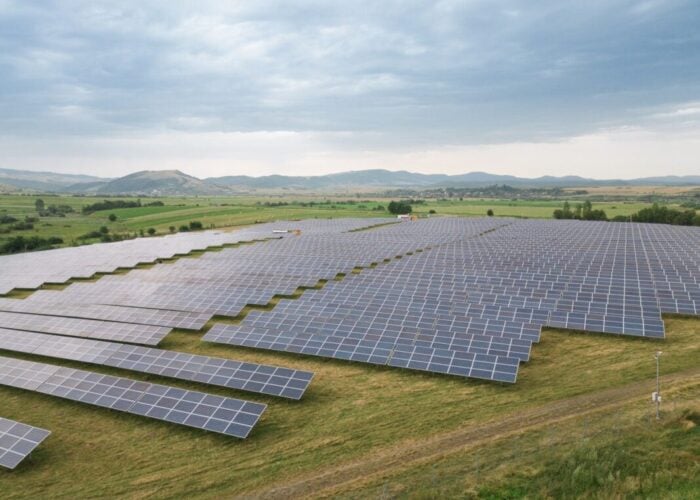
Heterojunction cell and module manufacturer Meyer Burger has reduced module output at one of its production plants in Germany as COVID-19 is causing above-average workforce absences via illness and quarantine orders.
With only one of two production lines at its module plant in Freiberg, Saxony now operational, the company has adjusted its production plans, with the reduction expected to last until the end of January 2022.
Try Premium for just $1
- Full premium access for the first month at only $1
- Converts to an annual rate after 30 days unless cancelled
- Cancel anytime during the trial period
Premium Benefits
- Expert industry analysis and interviews
- Digital access to PV Tech Power journal
- Exclusive event discounts
Or get the full Premium subscription right away
Or continue reading this article for free
The setback comes just months after Meyer Burger revealed supply chain bottlenecks were slowing the ramp-up of manufacturing capacity at its plants, with missing components leading to a delay in commissioning individual parts of production lines.
Switzerland-headquartered Meyer Burger opened the Freiberg plant and a cell facility in Thalheim, in the German state of Saxony-Anhalt, earlier this year, with both starting production with annual capacities of 400MW.
The company is planning to reach 1.4GW of both cell and module production capacity by the end of 2022.
Although production ramp-up at the Freiberg plant is on track, Meyer Burger said this week that due to ongoing work required for its expansion, production output at the site has been temporarily restricted.
And while reduced output is set to have a minor impact on a small number of confirmed orders, restrictions are set to have a negative impact on 2021 sales figures, the company warned. It posted first half sales of CHF18 million (US$19.7 million).
Meanwhile, due to cost developments, Meyer Burger has also said it will increase prices from next year and has already informed its customers of the changes. Presenting its H1 results in August, the company revealed it had around 30 customers, including distributors such as BayWa r.e., Krannich Solar, IBC Solar, Sonepar and Memodo in Europe and US distributor CED Greentech.
Despite the disruptions, Meyer Burger said its order intake continues to develop positively, reflected in a growing order backlog, with the company “very positive” about the development of the solar market in 2022.
It expects to benefit from plans from Germany’s new coalition government to increase the country’s installed solar capacity to 200GW by 2030, double its previous target, and it also pointed to policy support for solar in the US, where it is looking to set up a 400MW module production plant in 2022.
In an announcement in September, the firm said it would decide by the end of this year regarding the location of the plant, which will produce modules for residential, commercial and industrial, and utility-scale applications.






